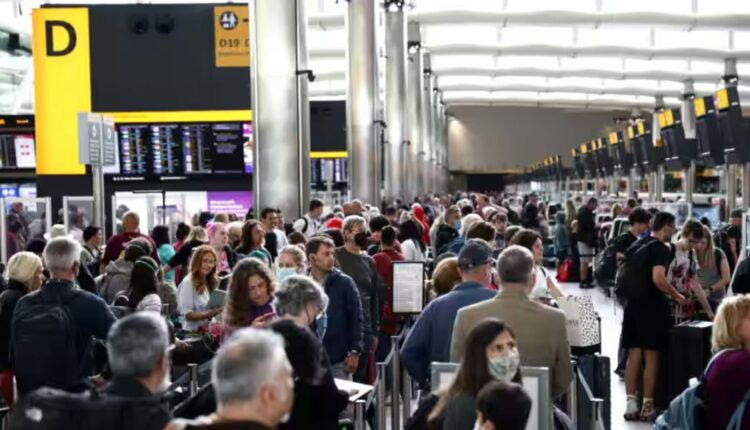Latest News
Heathrow: UK Air traffic control failures cause flight disruptions for days

The UK’s air travel landscape has been thrown into disarray due to air traffic control failures, and the transport secretary has issued a warning that flight passengers will continue to be affected for several days. In the midst of this turmoil, he has urged airlines to step up their efforts and fulfill their responsibilities towards stranded passengers.
In an interview on BBC Radio 4’s Today program, Mark Harper emphasised that National Air Traffic Services (Nats), the provider of air traffic control systems in the UK, has expressed remorse for the disruption. Harper himself extended his apology, acknowledging the frustration and inconvenience faced by travelers.
The disruptions unfolded during the recent bank holiday Monday, as a technical failure in the UK’s air traffic control necessitated the manual input of flight plans by controllers. By Monday afternoon, the repercussions were evident: 232 flights departing from UK airports were canceled, alongside 271 incoming flights, as reported by Cirium, an aviation analytics firm.
Harper categorically ruled out the possibility of a cyber-attack, asserting that experts in the field had examined the situation and confirmed the absence of any malicious digital intrusion. He affirmed his commitment to addressing the situation promptly and ensuring passengers’ welfare.
“Airlines have a responsibility either to get people back on a flight to get them home or to pay for them to be accommodated and to sort out accommodation of them, and for food or drink as well. If they don’t do it, people can pay for reasonable costs themselves and claim back from their airlines,” he clarified.
Addressing concerns about the broader reliability of the UK’s transport infrastructure, Harper offered reassurance. “On 99.9% of occasions, the air traffic system works perfectly well; millions of people fly into the UK without incident,” he emphasized, acknowledging the severity of the current disruption while placing it within the context of infrequent anomalies.













